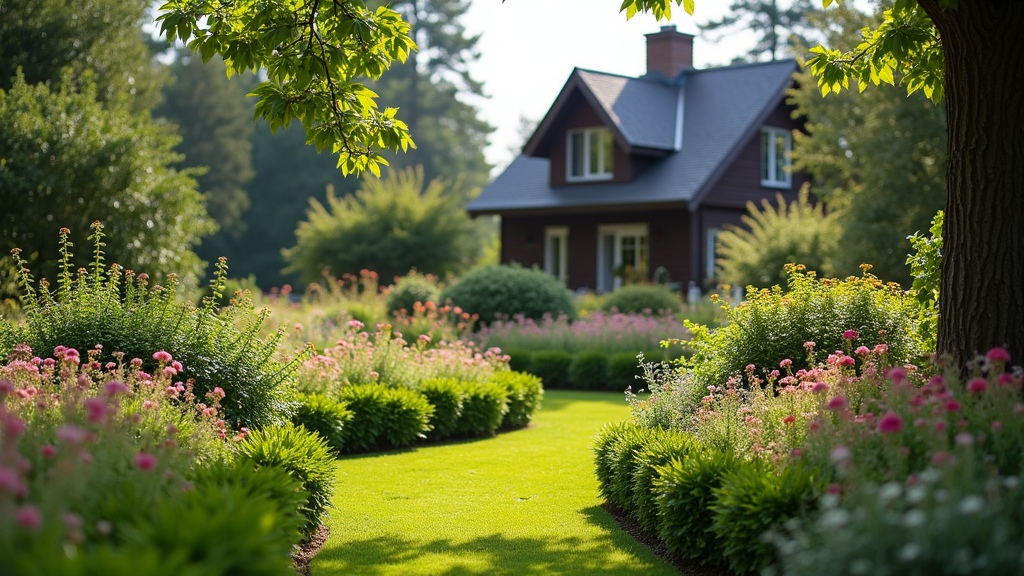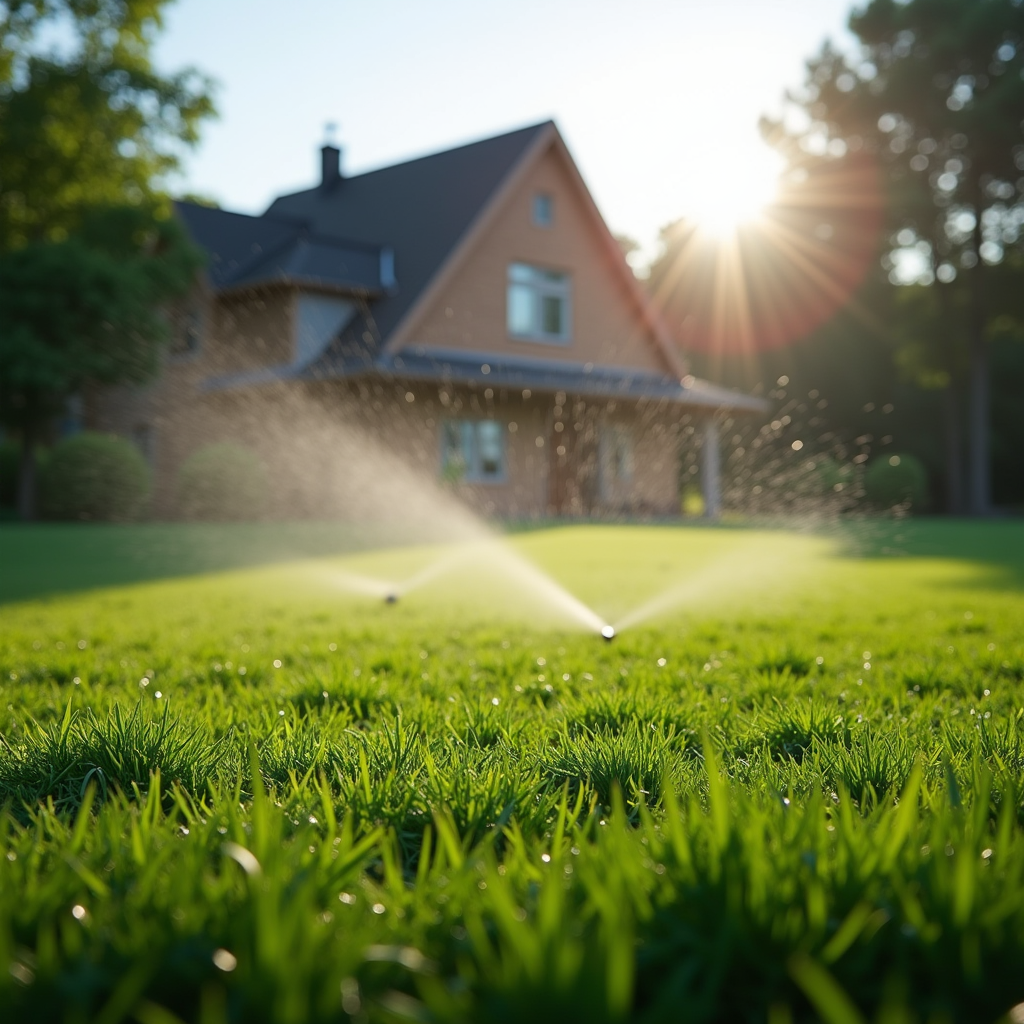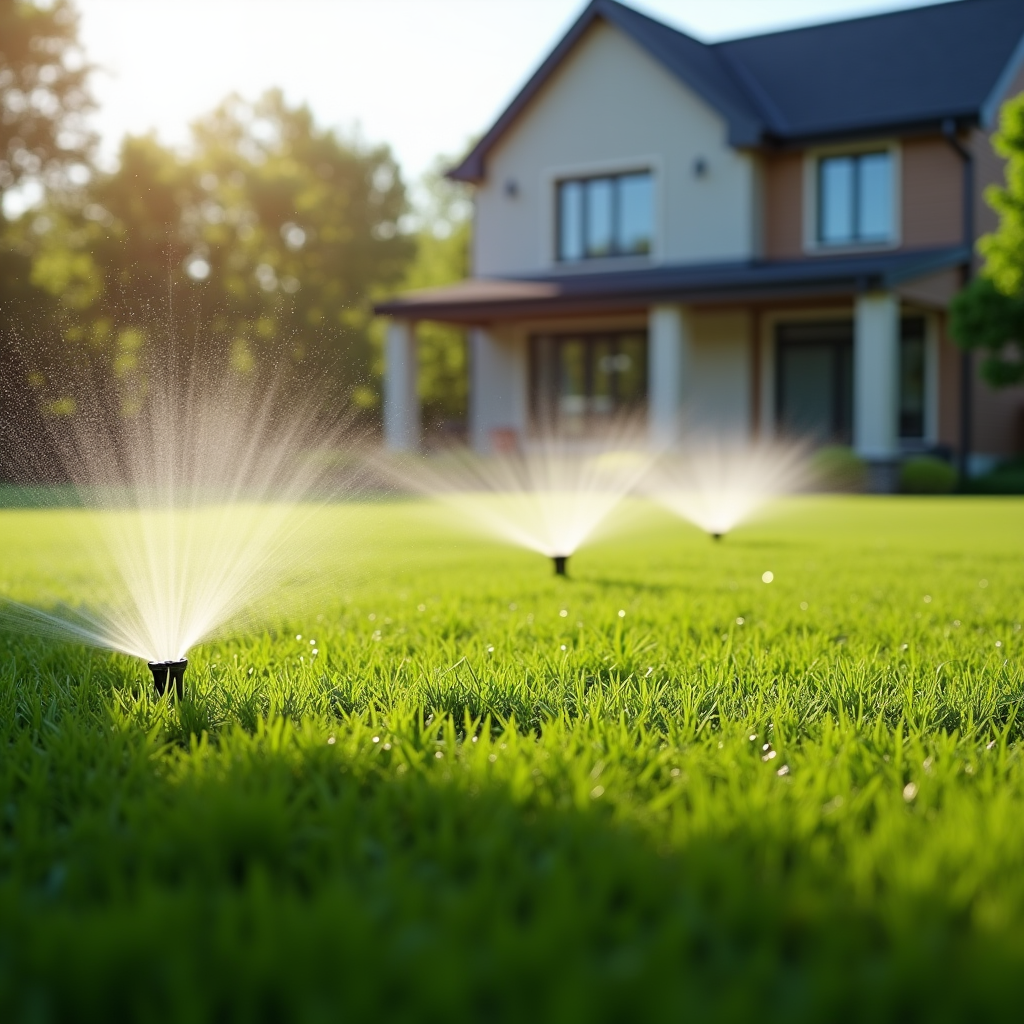Greensboro, North Carolina, is more than just a city; it’s a canvas of lush greenery and vibrant colors that beckon outdoor enthusiasts and homeowners alike. The art of landscaping here is not just about beautifying a space; it’s about creating functional outdoor areas that enhance life quality while elevating property value. In this article, we will explore the multifaceted world of Greensboro landscaping, combining functionality with aesthetics to transform your outdoor spaces into havens.
Understanding the Essence of Greensboro Landscaping
Landscaping in Greensboro goes beyond mere decoration. It intertwines with nature, culture, and lifestyle choices that reflect the community's values. The blend of Southern charm with modern design principles creates unique landscapes that cater to various needs.
What Makes Landscaping Unique in Greensboro?
The climate in Greensboro plays a crucial role in shaping the landscaping styles adopted by homeowners and professionals alike. With four distinct seasons, including hot summers and mild winters, the choice of plants and materials can significantly impact the overall aesthetic and functionality of gardens.

- Climate Considerations: Understanding how different plants thrive in varying conditions can help optimize your landscape design. Cultural Influences: Southern traditions often lead to the incorporation of native plants, ornamental trees, and robust flower beds.
The Role of Native Plants in Greensboro Landscaping
Native plants are vital for sustainable landscaping practices. They require less maintenance, are more resistant to local pests, and support local wildlife.
Benefits of Using Native Plants
Low Maintenance: Once established, native plants need less watering and care. Ecosystem Support: They provide habitats for local pollinators like bees, butterflies, and birds. Soil Health: Native plants contribute to soil stability and health through their deep root systems. http://trentonzyqx715.lowescouponn.com/a-beginner-s-guide-to-diy-landscape-designCombining Functionality with Aesthetics
When designing your landscape, merging functionality with aesthetics is key. Let's delve deeper into how you can achieve this balance.
Functional Spaces Versus Aesthetic Appeal
- Functional Spaces: These include patios for entertainment, gardens for growing vegetables or herbs, and paths for easy navigation. Aesthetic Appeal: This involves color schemes, plant choice, garden art installations, water features, etc., that create visual delight.
Key Elements of Effective Landscaping Design
1. Layout Planning in Greensboro Landscaping
Planning your landscape layout is foundational. It ensures that each element serves a purpose while maintaining visual harmony.
Tips for Effective Layout Planning
- Use a grid or sketch out your ideas on paper before starting. Think about sightlines from various angles around your property.
2. Selecting the Right Plants
Choosing the right plants can elevate both functionality and aesthetics in any landscaping project.
Factors to Consider When Choosing Plants
- Climate suitability Maintenance requirements Growth patterns
3. Hardscaping Essentials for Functionality
Hardscaping refers to man-made structures integrated into a landscape design—think patios, walkways, or retaining walls.

Benefits of Hardscaping
- Provides structure to softscape elements (plants). Offers durability against weather elements.
Incorporating Water Features into Your Landscape Design
Water features like ponds or fountains can enhance both tranquility and beauty within your landscape.
Benefits of Water Features
Creates soothing sounds that promote relaxation. Attracts wildlife such as birds and butterflies. Serves as an eye-catching focal point.Types of Water Features
| Type | Description | |------------------|---------------------------------------------| | Ponds | Natural-looking bodies of water | | Fountains | Decorative water displays | | Streams | Flowing water channels |
Adding Outdoor Lighting for Safety and Ambience
Outdoor lighting is essential not only for safety but also for enhancing the evening atmosphere.

Types of Outdoor Lighting
Path lights Spotlights String lightsGreensboro Landscaping: Incorporating Outdoor Furniture
Furniture plays an essential role in making outdoor spaces functional while adding aesthetic value.
Choosing the Right Outdoor Furniture
When picking furniture for your Greensboro landscape:
- Opt for weather-resistant materials like teak or aluminum. Ensure comfort by selecting ergonomic designs suitable for lounging or dining.
Creating Zones Within Your Landscape Design
Zoning refers to dividing your outdoor space into distinct areas based on function—like cooking zones versus relaxation spots.
How to Create Functional Zones
Identify activities you want each zone to accommodate. Use natural barriers like hedges or rocks to delineate spaces without obstructing views.Sustainable Practices in Greensboro Landscaping
Sustainability should be at the forefront when planning your landscaping project.
Implementing Eco-Friendly Techniques
Rainwater harvesting systems Composting organic waste Choosing drought-resistant plantsMaintaining Your Landscape Year-Round
Once you've created your ideal landscape design in Greensboro, regular maintenance is necessary to keep everything looking its best year-round.
Seasonal Maintenance Tips
- Spring: Prune trees and shrubs; check irrigation systems. Summer: Regular watering; fertilizing as needed. Fall: Leaf cleanup; prepare gardens for winter dormancy. Winter: Protect sensitive plants; plan spring projects!
Greensboro Landscaping Trends You Should Know About
Staying updated on trends can inspire new ideas for enhancing your outdoor space.
Popular Trends in Greensboro Landscaping
Vertical gardens Edible landscapes Minimalist designsGreensboro Landscaping: The Importance of Professional Help
While DIY projects can be fun, professional landscapers bring expertise that can save time—and often money—in the long run.
Why Hire a Professional Landscaper?
Experience with local flora/fauna Knowledge about zoning laws/permits Access to quality materials/toolsFrequently Asked Questions (FAQs)
1) What are common plants used in Greensboro landscaping?
- Common choices include azaleas, dogwoods, redbuds, ferns, and Southern magnolias due to their adaptability to local climates.
2) How often should I water my landscaped areas?
- Generally speaking, deeper watering once a week encourages robust root growth instead of shallow daily watering which promotes surface roots only.
3) What is hardscaping?
- Hardscaping refers specifically to non-planted elements such as patios made from stone or concrete pathways designed using pavers—all intended to enhance usability along with visual appeal within landscapes!
4) Can I do my own landscaping?
- Absolutely! Many homeowners enjoy DIY projects; however hiring an expert may uncover options you hadn’t considered before!
5) How do I choose between native versus exotic species?
- Native species require less maintenance since they’re adapted well-enough already! Exotic ones might introduce pests so weigh pros/cons carefully!
6) What are some low-maintenance plant choices?
- Consider sedums or daylilies—they thrive under most circumstances without demanding constant attention!
Conclusion
In conclusion, mastering the art of landscaping requires an understanding not just of aesthetics but also practicality—the balance between beauty & function! By integrating these elements effectively within their designs using techniques discussed above—including utilizing local flora & sustainable practices—homeowners throughout Greensboro can create unique environments reflective both personal taste & regional character! Whether you're seeking tranquility through thoughtfully designed garden paths lined with native flowers or vibrant social spaces boasting comfortable furniture arrangements under twinkling string lights—there’s no limit when it comes time getting creative during planning sessions! So roll up those sleeves because it’s time transform visions into reality right here at home sweet home—the beautiful landscapes await you!